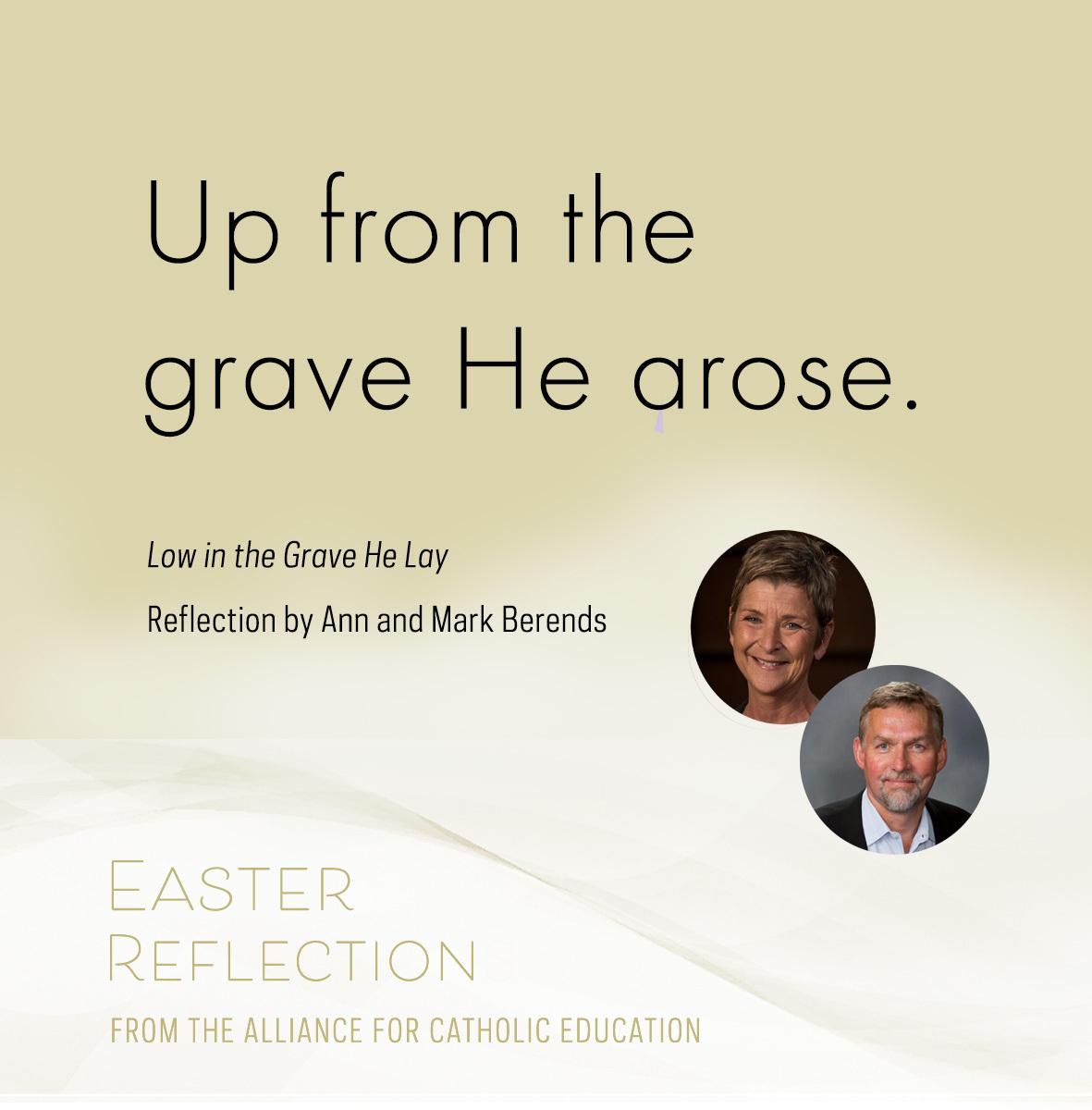Low in the grave He lay
Jesus my Savior!
Waiting the coming day
Jesus my Lord!
Up from the grave He arose
With a mighty triumph o'er His foes
He arose a Victor from the dark domain
And He lives forever with His saints to reign
He arose! (He arose)
He arose! (He arose)
Hallelujah! Christ arose
We grew up singing this hymn every Easter Sunday. As kids we didn't grasp its full meaning; we were more focused on our childish wordplay – "Low in the gravy lay Jesus" – than the song's message of resurrection. But even then we appreciated the way each verse flowed from dirge to jubilation, the organ's bassline thrumming, opening full throttle for the chorus, "Up from the grave he arooooose!" It was a joy to sing.
It still is, maybe now more than ever, because life has shown us again that dirge and jubilation are necessarily linked. Resurrection only happens after death, and for now, we still have death in all its forms. It’s inescapable; we all come to Easter through the valley of the shadow. Ours has been particularly deep this year, so our Easter joy is muted. Maybe yours is, too. You are lamenting the death of someone you love, or of a relationship beyond repair. You have held vigil with a hurting friend or witnessed unspeakable pain. You are grieving the loss of physical or mental health, or mourning the violence and destruction around, between, and within us.
It can be troubling, arriving at the Easter Feast with tear-stained faces, especially when we’re surrounded by blooming lilies and blaring trumpets and parishioners sporting jaunty new hats and patent leather shoes. Until we remember that that’s how Jesus found his friends on the first resurrection Sunday. The day itself was muted, unfolding without fanfare, "while it was still dark." Jesus rose and appeared quietly – standing in the garden, walking along the road, cooking on the beach. The disciples, sick with sorrow, did not recognize Him at first, and then were more fearful, baffled, or doubtful more than anything else. No matter. Jesus simply, gently showed up with comfort, reassurances, proof. “Mary.” “Don’t be afraid.” “Put your hand in my side.”
The disciples’ encouragement is ours today: Jesus understands our grief, and He is with us now as surely as He was with them all those years ago. Maybe in the one we don’t recognize who is saying our name, or the person walking beside us, or the friend cooking us breakfast. Maybe in that phone call or text, that unexpected visit, the warm smile of a stranger. Jesus never distracts us from the devastation of loss, but He sits with us in it, and points us to the hope that will follow. Because it will follow.
“Resurrection,” wrote Frederick Buechner, “means that the worst thing is never the last thing.” So however we sing our Hallelujahs this year—with happy shouts or mournful murmurs—we proclaim the promise that nothing can separate us from the God who loved us to death and back again. However we sing our Hallelujahs, we declare that Christ arose! And then together, we watch for Him to appear.
 Alliance for Catholic Education
Alliance for Catholic Education
